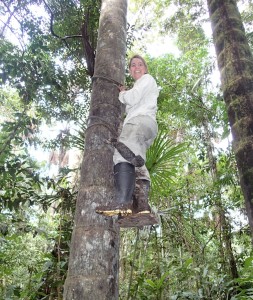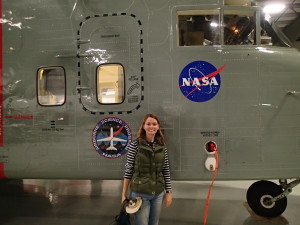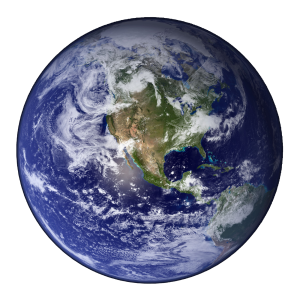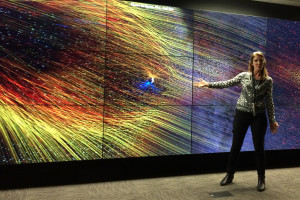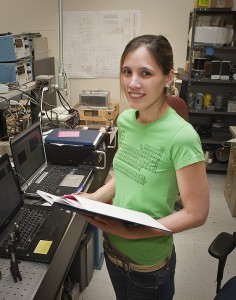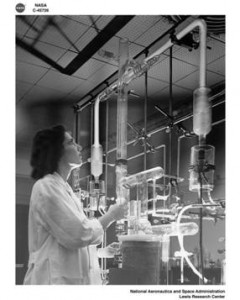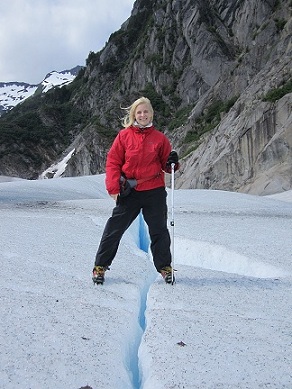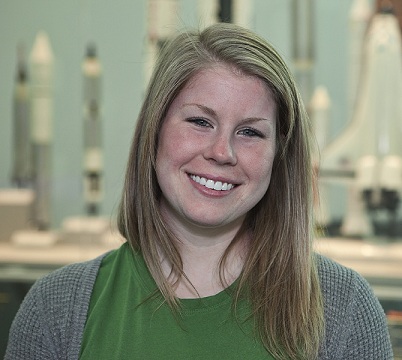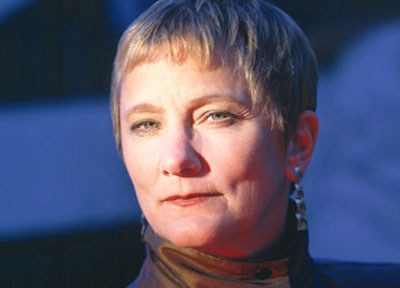For the past few years, we have been celebrating Female Geoscientists Day and Earth Science Week by bringing you a few stories on some of the women who contribute to learning about our wonderful home-Mother Earth. Today, we would like to introduce to you a wonderful physical scientist, Yolanda Roberts. We hope you learn a bit from Dr. Roberts and feel the same inspiration we did when we interviewed her! To learn more about the celebration, click here or here in Spanish.
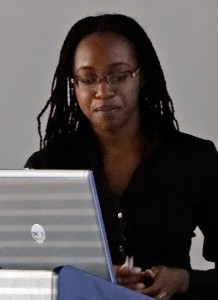
How did you discover your passion for Earth Science?
My family moved to Virginia from New England when I was 10, and every summer, I was afraid of the thunderstorms that would roll through. Concerned that the thunderstorms would spawn tornadoes, I kept The Weather Channel on all day. Eventually I became interested in the weather happening all over the country, how meteorologists on TV talked about it, and the meaning of all the cool weather maps. My curiosity was piqued! I wanted to know more about how meteorologists did their job, which led to my exploring other areas of atmospheric science.
What do you enjoy most about what you do?
I get excited when I talk to colleagues about what I do because it helps me to hear about the relevance of my work. I am encouraged by positive (and constructive critical) feedback from interested scientists, especially mid- to late-career scientists who have a solid big picture of the important questions within my field.
What inspired you to work in this field?
The summer after my junior year of college, I had an internship at Lockheed Martin Corporation. My first assignment was to work with the algorithm that determined ocean currents from satellite measurements. Although I had learned about Earth remote sensing in class, this was my first taste of working with and understanding the details of how a physical variable was determined from satellite measurements. I was fascinated that scientists had discovered a way to map ocean currents from space! This fascination encouraged me to learn about what other physical variables in Earth’s climate system we can learn about using satellite measurements. Even though I understand the details of some of these algorithms now, I still find it amazing that we can learn so much about our physical world from satellite measurements.
Where do you work and do you remember what it was like on your first day of work?
I am a physical research scientist in the Science Directorate at the NASA Langley Research Center. I was nervous and excited on my first day of work! Before I started working at Langley, I had the opportunity to work with and get to know some of my new colleagues since we were working on the same project together. Because of this, I already knew many of my new colleagues on my first day, and it was great to be welcomed into my new working environment by people I already knew and respected.
This year’s theme for Earth Science Week is Mapping Our World, how would you describe the role of mapping technologies (images, maps and visualizations) in your work?
One of my main research interests focuses on what we can learn from Earth-reflected sunlight about how and why Earth’s climate is changing. Different regions of the Earth have been changing in a variety of ways. I have been interested in overlaying my results on maps of the Earth so that I can learn about how regional changes of physical variables in different regions (e.g. clouds over the ocean or over land, vegetation in the Amazon, sea ice extent in the Arctic, etc.) have been changing over time and are manifested in measurements of reflected sunlight.
What are some of the most important lessons you have learned in your life?
Find what you love and stick to it! Even what you love to do isn’t always fun or easy at every single moment, so if that foundation is there, even during the more difficult moments you can remind yourself why you’re enduring the temporary struggle.
What do you consider your greatest accomplishment?
I think I would say completing my PhD! I had to motivate myself with reminders that this degree was something I wanted, that I genuinely cared about the work I was doing, and that my work was a valuable new addition to my field. I hope to continue to use what I added to the my field’s knowledge base in the process of finishing my PhD by continuing to expand on how we use satellite measurements of reflected sunlight to study climate change.
What was the most difficult moment of your career? What did you learn?
I don’t know if I can think of a single difficult moment in my career, but I’m typically very hard on myself, particularly when preparing for times when I know I’ll be evaluated. This includes submitting reports or proposals, holding status update meetings, and preparing presentations. During these times, I have found it most helpful to get feedback from external sources such as my colleagues and mentors. The feedback they give me is much more realistic and objective than the particularly harsh criticism I often give myself. Relying more on this external feedback has helped me to evaluate myself a bit more realistically when I’m especially stressed.
Who has been the biggest influence on your life, and what lessons did they teach you?
I have had the honor of crossing paths with many wonderful people from whom I’ve learned several invaluable lessons, but one of the first and most significant influences on my life was my maternal grandfather. He taught me how to read and how to do basic arithmetic at a very young age. He also taught me how to ride a bike, which led to my learning another life lesson from him: “No pain, no gain!” I think I can attribute my tenacity in solving problems to him. He wouldn’t let me give up on tasks and encouraged me to set my mind to them.
How has your career been different than what you’d imagined?
Even though I always knew that I wanted to do something related to the atmosphere, for a long time, I didn’t have a clear idea of what I wanted to do. Finally, after having some experience doing research in graduate school, I realized that research would be fun and a good fit for me, so I started looking for positions in that vein. I didn’t just expect, however, that I would end up here at NASA Langley! It was a pleasant surprise that there was a good place for me to fit in here.
Did you have to overcome any gender barriers in your career?
I don’t think I’ve encountered any serious gender barriers. Women are certainly a minority in atmospheric science, and I often realize that I’m either the only woman or one of a mere handful of women in the room. I do appreciate the strong, successful women that I have encountered in my field thus far and the support that I have gotten from them. Whether you encounter gender barriers or not, I would recommend seeking out the community, friendship, and mentorship of the strong women around you so you have the support you need when difficult situations arise.
What does your future hold?
At this point, I haven’t been a NASA a year yet, but I think there are great opportunities here for me to grow as a scientist and leader in my field, and that there are ways that I can contribute to our knowledge base in atmospheric and climate science. Since those are some of my life-long career goals, I hope my future includes continuing to work for NASA for a large chunk of my career (at least!).
What one piece of advice would you like to pass on to the next generation?
Learn how to take criticism well! It can be hard to hear critical comments about yourself and your work, but find mentors and colleagues who can deliver direct, constructive criticism without breaking your spirit. Then learn how to use that information to further improve your skills. This has served me well thus far, and I intend to continue to hone this skill of receiving criticism well and using it for my benefit (and ultimately the benefit of others).
Any other advice you would like to leave us with?
Always work hard and try your best regardless of what you do, but remember not to isolate yourself! Yes, it is important to commit yourself to your passions at work, but find other activities outside of work that you enjoy as well. Your brain will thank you for the break and change of pace, and it will likely serve you well in the workplace too!

